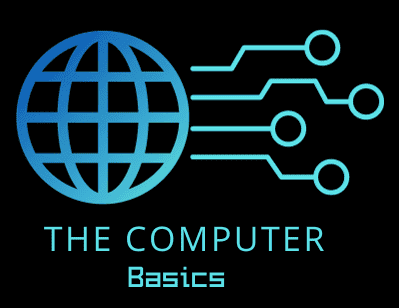Navigating the internet to find exactly what you need can be like looking for treasure without a map. But with the right search techniques, you don’t have to sift through pages of irrelevant results.
Learning how to harness the power of search engines like Google can transform your online quests, saving you time and frustration.
You can start by understanding how to select the right keywords and use the advanced search options available.
This isn’t just about throwing a couple of words into the search bar; it’s about crafting a query that’s as specific as your needs.

Whether you’re researching for a project, shopping, or just satisfying your curiosity, the right approach to searching can lead you to more valuable and precise search results.
Certain strategies such as using quotation marks to search for an exact phrase or a minus sign to exclude irrelevant information might drastically narrow down your results.
There’s also a host of other search engines beyond Google, each with its own strengths, that can offer different perspectives and resources for your inquiries.
By building your search skills, you’ll be equipped to find that needle in the digital haystack with confidence.
Understanding Search Engines
Search engines like Google, Bing, and Yahoo serve as your gateway to the vast information available on the internet. They work by scanning the web and indexing pages so that you can find them easily.
When you type in a query, these engines use complex algorithms to pull up the most relevant search results.
| Major Search Engines | Unique Features |
|---|---|
| Personalized and location-based results | |
| Bing | Rewards program, integration with Microsoft products |
| Yahoo | News and finance integration |
To ensure you’re getting reliable sources in your internet searches, consider these tips:
- Use specific keywords: This narrows down your search results to be more relevant to what you’re looking for.
- Leverage advanced search options: Certain commands and filters can refine your results even further.
- Assess the source: Look for indicators of credibility, such as informational sites over commercial ones when searching for facts.
Remember, each search engine has its quirks and features—it’s all about finding which one works best for your needs.
Whether you’re digging for academic articles or just looking up a new recipe, understanding how these tools function is the first step to better, more efficient searches online.
Mastering Basic Search Commands
To get the most out of search engines, it’s crucial to understand and effectively use basic search commands.
Using Boolean Operators
You can refine your search results by using Boolean operators, which are simple words (and, or, not) used as conjunctions to combine or exclude keywords in a search, thus helping streamline the results.
- AND: This operator narrows your search by including only results that contain both keywords. For example, typing
cats AND dogswill find pages that include both terms. - OR: Use this to widen your search to include results with either of the keywords. Searching
cats OR dogsexpands the results to include pages that have either word. - NOT: This excludes terms so that you can focus on pages that have one subject but not another.
Cats NOT lionsfinds pages about domestic cats but excludes those that mention lions.
Leveraging Quotation Marks and Wildcards
Quotation marks and wildcards are search tools that can specify your query or replace unknown terms.
- Quotation Marks: When you put a phrase inside quotation marks, the search engine looks for the exact phrase. For instance,
"best coffee shops in New York"will show pages with that exact sentence. - Wildcard: Typically represented by an asterisk (*), a wildcard can substitute for any unknown or variable word. Searching
best * in New Yorkincludes results for ‘best restaurants’, ‘best museums’, etc., filling in the wildcard space with various options.
Advanced Search Techniques

In the vast ocean of information that is the internet, advanced search techniques act as your navigation tools, helping you pinpoint the exact information you need.
Utilizing Advanced Search
Advanced search forms give you a variety of fields and filters to narrow down search results.
You’ll often see options like language, region, last update, and content type. By filling in these parameters, you’re directing the search engine to look for content that matches your specific criteria.
Exploring Google Search Operators
Google search operators are like cheat codes for your searches, providing a faster way to get results.
For example, using site.com will search only within that domain. To find pages similar to a known site, try related.com.
You can specify the type of file you’re looking for with filetype, which is handy for academic articles or specific documents.
The Power of Reverse Image Searches
Reverse image searches let you find where an image has appeared online or discover similar images.
You simply upload an image to a search engine or enter the image URL, and the engine will show you where else it’s been used or provide images that are visually similar.
This can be especially useful for identifying the source of an image or finding higher resolutions.
Optimizing Keyword Usage

Crafting the perfect search query is like picking the lock to an infinite vault of information. Get it right, and you’ll find exactly what you need.
The Importance of Keywords
Keywords are your search’s backbone; they guide the search engines straight to the data you’re after.
Think of keywords as the GPS coordinates for content on the web. When you’re precise, search engines reward you with spot-on results.
Miss the mark, though, and you may as well be searching with a blindfold on.
Combining Words and Phrases
Craftiness in combining words and phrases can drastically narrow down your search.
Want to up your game? Layer your keywords like a lasagna of logic. For example:
- “climate change” AND “energy policies”
- “web development” OR “programming”
Pairing up terms with AND, OR, and not forgetting the helpful “-[keyword]” to exclude info, refines your results even further.
Using Synonyms and Controlled Vocabulary
A single concept might wear many hats. That’s where synonyms come into play, expanding your search without diluting the essence.
But there’s a catch – too broad, and you’ll dilute your search, too narrow, and you might miss out.
The composition of the search terms profoundly shapes the outcome. If one term isn’t hitting the mark, try additional keywords that might be used in the context you’re interested in.
Here’s where controlled vocabulary steps in – those librarian-approved, standardized terms that classify content.
By using such controlled vocabulary, you’re tapping into a system that’s designed to connect related information – even if the authors describe it differently.
This minimizes the quirks of different spellings or terminology, ensuring you don’t miss a thing.
Refining Research Strategies

Becoming proficient in refining your research strategies is key to isolating the most reliable and relevant articles for your project.
Let’s examine how to evaluate sources for credibility and effectively navigate specialized databases.
Evaluating Sources
When you’re sifting through an ocean of articles, it’s essential to use critical thinking to evaluate the trustworthiness of your sources.
Ask yourself: Is the information recent? Does it come from a reliable source?
Cross-reference information from the article with other research or reports.
Particularly in the sciences, social sciences, and humanities, ensuring that an article is peer-reviewed can be a benchmark for reliability.
Tools like JSTOR or Web of Science offer an array of scholarly content where you can verify the authenticity of articles.
Navigating Through Specialized Databases
Specialized databases are your best bet for in-depth research.
Familiarize yourself with features specific to databases relevant to your field. If you’re in social media research, look for databases focused on digital communications or media studies.
Bibliographic databases often contain more specific, expert-curated content that can save you time.
Develop a search strategy: combining Boolean operators (‘AND’, ‘OR’, ‘NOT’) can dramatically narrow or expand your results.
Remember, it’s not just about finding any source; it’s about finding the right source that propels your research forward.
Leveraging Multimedia and Localization

When you’re looking for specific content online, it pays to know how to effectively search using multimedia elements like images and videos, as well as utilizing maps and localized content to get the most relevant results.
Searching for Videos and Images
A picture’s worth a thousand words. With the right techniques, you can find high-quality images that convey exactly what you need.
Start by using descriptive keywords that capture the essence of the image you’re after. When you’re on the lookout for videos, include terms that relate to the content or production type, such as “tutorial” or “live performance.”
Don’t forget to filter results by resolution or date to narrow it down to the freshest and sharpest content.
For videos, tailoring your search query to include the type of content you want can save you time. If you’re after news clips, add “interview” or “report” to your search. If it’s instructional videos you need, “how-to” or “step-by-step” might yield better results.
Remember, platforms like YouTube allow you to select specific channels or users, so use that to your advantage when you know a reliable source.
Using Maps and Localized Content
When you’re searching with a focus on location, maps are your best friend.
Dive into localized search results by including the name of the place you’re interested in. Try out map-specific search functions to see geographic information.
Things like business listings or local landmarks pop up faster this way.
Don’t just stop with maps; integrating the language of the area you’re researching can pull up more nuanced and region-specific content.
This is particularly helpful for finding local news or community events.
Use tools that localize your search parameters. This means your results will be tailored to the region and its unique online ecosystem.
It’s the difference between finding a coffee shop in general and discovering the coziest cafe right around the corner from your place.

